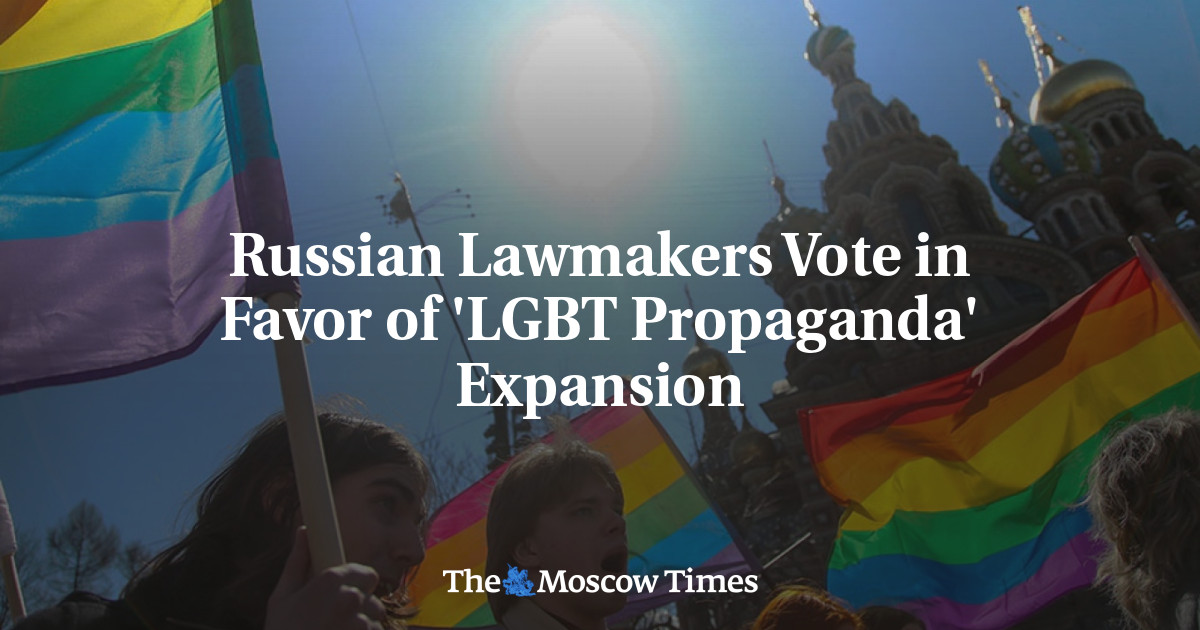
Russian lawmakers on Thursday voted unanimously in favor of a bill to forbid the spreading of “propaganda of non-traditional sexual relations” toward minors and adults.
While Russian law currently prohibits the spread of so-called “gay propaganda” to minors under 18, the new bill would expand the ban to content aimed at all age groups. Activists say the bill, if passed, will effectively outlaw any display or mention of LGBT relationships and lifestyles on public platforms.
The bill, passed in the first reading by the lower house of parliament, or State Duma, would also expand the list of information prohibited for dissemination to children, including “information that can make children want to change their gender.”
According to the State Duma website, the bill would toughen the requirements for advertising and ban “demonstration of non-traditional sexual relations or preferences.” Films that “promote non-traditional sexual relations” would also not be granted a rental license.
Individuals would be fined up to 400,000 rubles ($6,512) for spreading such information “among people of any age,” while legal entities would be obliged to pay a penalty of up to 5 million rubles ($81,400).
Spreading any information about “non-traditional sexual relations” among minors or information that “can make minors want to change their gender” would result in fines of up to 200,000 rubles ($3,256) for individuals and 4 million rubles for organizations.
The bill now must pass two more rounds of voting in the lower-house State Duma and one in the upper-house Federation Council as well as be signed by President Vladimir Putin before it becomes law.
Russia in 2013 outlawed “propaganda of non-traditional sexual relations” toward minors, a move seen as part of the Kremlin’s wider conservative agenda. The ban has been widely criticized by human rights groups and LGBT rights advocates.
The current law states that such “propaganda” is punishable by a fine of up to 1 million rubles ($17,200) or up to 15 days in jail.
Homosexuality was a criminal offense in Russia until 1993 and was classified as a mental illness until 1999.